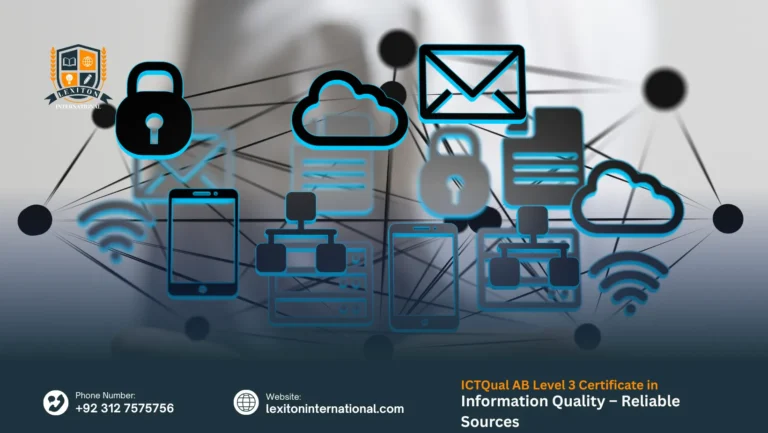The ICTQual AB Level 6 Diploma in Quality Assurance / Quality Control (QA/QC) Civil is a comprehensive qualification designed to equip learners with advanced knowledge and skills in civil engineering quality management. This diploma focuses on developing expertise in planning, implementing, and supervising quality assurance and quality control processes in civil construction projects. Learners gain a deep understanding of industry standards, safety regulations, and compliance requirements, ensuring that civil engineering works meet both client specifications and regulatory guidelines.
The course covers critical areas such as inspection and testing of construction materials, structural quality monitoring, documentation and reporting systems, and risk management strategies. Through a combination of theoretical learning and practical case studies, participants acquire the ability to evaluate construction quality, detect deviations, and implement corrective actions effectively. Emphasis is placed on applying internationally recognized QA/QC standards to optimize project outcomes and maintain high levels of workmanship and safety.
Graduates of this diploma are well-prepared to pursue senior roles in civil engineering quality management, including QA/QC Manager, Site Inspector, Compliance Officer, or Quality Engineer in construction, infrastructure, and project management sectors. By completing this program, learners will enhance their professional credibility, develop leadership and decision-making skills, and position themselves as competent practitioners capable of ensuring quality excellence across complex civil engineering projects.
To ensure learners gain the most from the ICTQual AB Level 6 Diploma in Quality Assurance / Quality Control (QA/QC) Civil, applicants are expected to meet the following entry criteria:
- Educational Background:A minimum of Level 5 qualification in civil engineering, construction management, or a related field.Applicants with substantial work experience in civil engineering, construction supervision, or QA/QC roles may also be considered.
- Age Requirement:Learners should be 18 years or older, making it suitable for both recent graduates and experienced professionals.
- Language Proficiency:Since the course is delivered in English, learners should have proficient English language skills (IELTS 5.5 or equivalent for international students) to understand technical concepts, standards, and documentation.
- Technical Knowledge:A solid foundation in civil engineering principles, construction processes, and quality management systems is recommended.Understanding of materials, structural concepts, and project management basics will enhance learning outcomes.
- Practical Experience (Optional but Beneficial):Work or internship experience in civil construction, site inspection, or QA/QC projects will provide practical context and improve engagement with the course content.
- Digital Literacy:Basic skills in using computers, online learning platforms, and software applications are necessary for completing assignments, assessments, and project documentation.
- Motivation and Commitment:Learners should demonstrate a strong interest in civil engineering quality assurance, regulatory compliance, and process improvement, with a commitment to applying these skills in professional environments.
Mandatory Units
This qualification, the ICTQual AB Level 6 Diploma in Quality Assurance / Quality Control (QA/QC) Civil, consists of 6 mandatory units.
Learning outcomes of ICTQual AB Level 6 Diploma in Environmental Engineering 360 Credits – Three Years:
Advanced Civil QA/QC Management Systems
- Understand the principles and framework of advanced quality assurance and control systems in civil engineering.
- Develop the ability to design, implement, and evaluate QA/QC management strategies for large-scale civil projects.
- Analyze quality policies, procedures, and compliance mechanisms to enhance project performance.
- Apply process improvement techniques to optimize civil engineering operations.
- Integrate QA/QC systems with project management and construction workflows effectively.
Civil Site Inspection and Material Testing Techniques
- Demonstrate knowledge of site inspection protocols and material testing procedures for civil works.
- Conduct systematic inspections to identify defects, deviations, and compliance issues.
- Apply non-destructive and destructive testing techniques to assess material properties and structural integrity.
- Prepare accurate inspection and testing reports aligned with project specifications.
- Ensure safety, regulatory compliance, and quality standards during site inspections.
Statistical Process Control and Data Analysis in Civil Engineering
- Understand statistical methods and process control techniques for monitoring civil construction quality.
- Collect, analyze, and interpret quality data to identify trends and anomalies.
- Apply statistical tools such as control charts, capability analysis, and regression techniques to improve processes.
- Make data-driven decisions to enhance quality performance and reduce project risks.
- Communicate analytical findings effectively to project stakeholders.
Construction Materials, Structural Reliability, and Quality Assurance
- Evaluate the properties, performance, and suitability of construction materials in civil engineering projects.
- Assess structural reliability and durability through quality assurance techniques.
- Identify common material defects and implement corrective and preventive measures.
- Apply best practices for ensuring material compliance with design specifications and standards.
- Promote quality-focused practices in construction materials handling and testing.
Compliance with International Civil Engineering Standards and Regulations
- Understand international civil engineering standards, codes, and regulatory requirements.
- Ensure construction projects comply with ISO, ASTM, BS, and other relevant standards.
- Evaluate project documentation and processes for adherence to regulatory frameworks.
- Apply quality control and assurance measures to meet global industry benchmarks.
- Develop strategies to address non-compliance and improve overall project governance.
Leadership, Risk Management, and Project Supervision in QA/QC Civil
- Demonstrate leadership skills in managing QA/QC teams and supervising civil projects.
- Identify, assess, and mitigate risks related to quality, safety, and project execution.
- Develop project supervision plans that integrate QA/QC, scheduling, and resource management.
- Apply problem-solving and decision-making techniques to resolve site and quality issues.
- Promote a culture of accountability, continuous improvement, and safety awareness in civil engineering projects.
The ICTQual AB Level 6 Diploma in Quality Assurance / Quality Control (QA/QC) Civil is designed for professionals and graduates who aim to develop advanced expertise in civil engineering quality management, inspection, and compliance. It is particularly suited for learners seeking leadership roles in QA/QC within construction and civil projects.
1. Civil Engineering Professionals
- Site engineers, QA/QC officers, and supervisors seeking to enhance their knowledge of quality management systems.
- Construction managers and civil project coordinators aiming to improve inspection and compliance skills.
- Experienced technical staff aspiring to senior roles in quality assurance and control.
2. Engineering Graduates and Diploma Holders
- Individuals with a Level 5 qualification in civil engineering, construction management, or related fields.
- Graduates aiming to specialize in QA/QC and advance their technical and managerial competencies.
- Learners seeking internationally recognized qualifications in civil quality assurance.
3. Skilled Workers and Technical Staff
- Construction technicians, material testers, and site inspectors wishing to formalize their QA/QC knowledge.
- Professionals involved in structural testing, material evaluation, and project supervision.
- Individuals who want to apply best practices in quality control and civil project management.
4. Career Changers and Aspiring Leaders
- Individuals seeking to transition into QA/QC management roles within civil engineering.
- Learners motivated to lead quality-focused teams and ensure compliance with international standards.
- Professionals aiming to develop risk management, leadership, and project supervision skills.
This diploma is ideal for learners committed to achieving excellence in civil engineering quality management. It equips them with the technical, analytical, and leadership capabilities needed to ensure compliance, optimize project outcomes, and progress to senior QA/QC roles across the construction industry.
Completing the ICTQual AB Level 6 Diploma in QA/QC Civil provides learners with multiple pathways for academic and professional growth. Below are the key progression opportunities with detailed points:
1. Higher-Level Qualifications
- Progress to ICTQual Level 6 Diploma in Civil Engineering QA/QC.
- Enroll in postgraduate diplomas in construction quality management.
- Access specialized academic programs in project management or structural engineering.
- Gain eligibility for advanced certifications recognized internationally.
2. Specialized Certifications
- Obtain Non-Destructive Testing (NDT) certifications for civil structures.
- Complete ISO 9001 Lead Auditor training for quality management.
- Acquire CSWIP Welding Inspection certification for construction QA/QC.
- Enroll in Structural Engineering or Materials Testing specialized courses.
- Enhance skills in safety and compliance auditing for civil projects.
3. Senior QA/QC Roles
- Work as QA/QC Manager overseeing project quality operations.
- Serve as a Civil QA/QC Engineer responsible for inspection and compliance.
- Take on Site Quality Supervisor positions monitoring materials and construction processes.
- Become a Compliance Officer ensuring adherence to regulations and standards.
- Manage quality assurance teams for large-scale civil engineering projects.
4. Leadership Opportunities
- Lead multi-disciplinary teams in civil engineering projects.
- Supervise multiple sites or projects ensuring consistent quality standards.
- Implement process improvement initiatives across projects.
- Develop strategic quality management plans for organizations.
- Mentor junior engineers and QA/QC staff to enhance team performance.
5. Industry Employability & Career Development
- Strengthen employability in infrastructure and urban development projects.
- Work in oil and gas, construction, transportation, and industrial sectors.
- Take on roles involving risk assessment and quality governance.
- Contribute to project optimization and efficiency through QA/QC expertise.
- Build a pathway toward senior management or consultancy roles in civil engineering quality assurance.
Curious About This Course?







